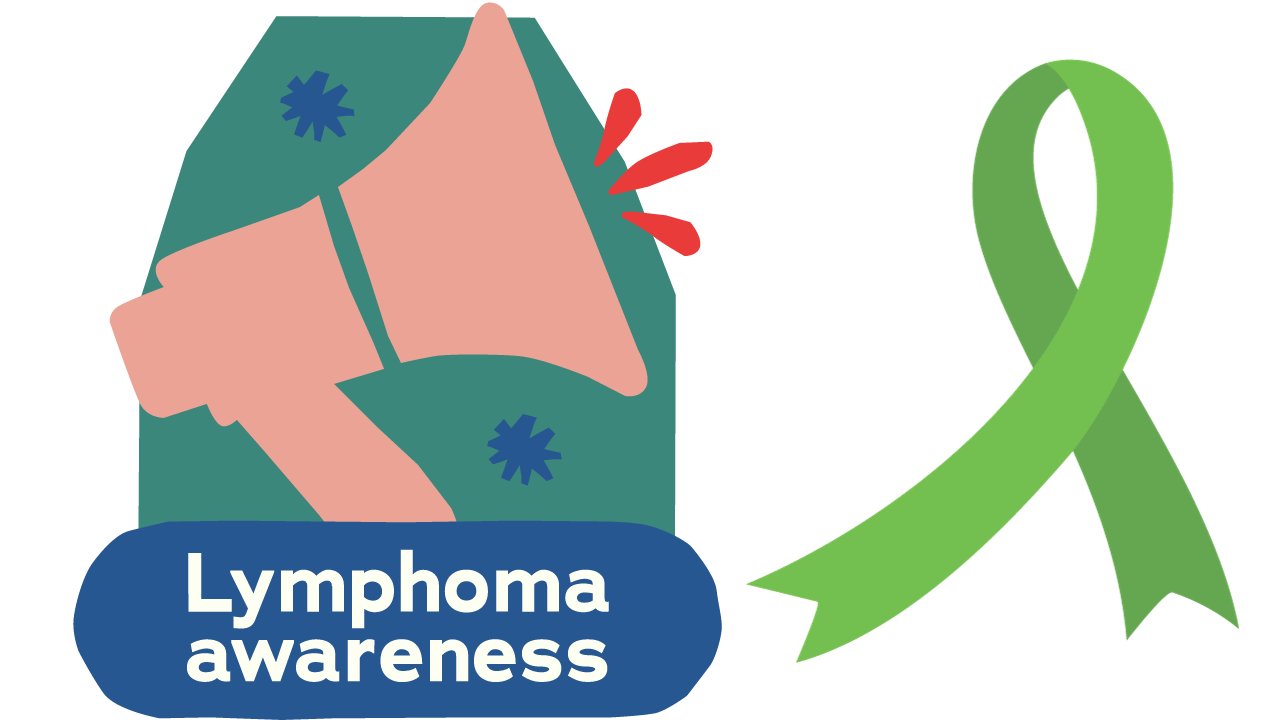Unveiling World Lymphoma Awareness Day 2023
Every year, on September 15th, the world comes together to observe World Lymphoma Awareness Day (WLAD). This annual event is dedicated to raising awareness about lymphoma, a group of blood cancers that profoundly affect the lymphatic system—an integral part of our immune system. Lymphoma takes on various forms, with Hodgkin lymphoma and non-Hodgkin lymphoma being the two primary categories.
The Importance of this Day
1. Education
WLAD plays a crucial role in educating the public about lymphoma, including its diverse types, symptoms, risk factors, and available treatment options. Increased awareness can lead to earlier diagnosis, ultimately improving outcomes for individuals battling lymphoma.
2. Support and Information
This day provides essential support and information to lymphoma patients and their families. It helps them grasp the complexities of the disease and discover available resources to navigate their challenging journey.
3. Research
WLAD underscores the significance of ongoing research into lymphoma. Many advancements in treatment and improved survival rates arise from dedicated research efforts.
4. Reducing Stigma
Lymphoma, like many health conditions, can carry a stigma. WLAD addresses this by providing accurate information and fostering understanding and empathy for those affected by the disease.
5. Advocacy and Fundraising
WLAD encourages advocacy efforts to enhance access to quality healthcare for lymphoma patients. It also serves as a platform for fundraising initiatives that channel resources toward research and patient support programs.
The History and Evolution of World Lymphoma Awareness Day
The origins of WLAD can be traced back to the establishment of the Lymphoma Coalition in 2002—an international network that brought together lymphoma patient organizations worldwide to collaborate, share resources, and advocate for lymphoma patients. WLAD was inaugurated in 2004, coinciding with the formation of the Lymphoma Coalition. Since then, it has evolved into a global effort dedicated to raising awareness about lymphoma and its profound impact on patients.
Commemorating Lymphoma Awareness Day
Across the globe, numerous organizations, patient advocacy groups, healthcare professionals, and individuals actively participate in WLAD activities. These activities include:
- Educational Campaigns: Spreading information about lymphoma through various media channels and events.
- Fundraising Events: Initiating campaigns to collect funds for research and patient support programs.
- Support Group Meetings: Bringing together lymphoma patients and their families to share experiences and find emotional support.
- Awareness-Raising Initiatives: Conducting initiatives that emphasize the importance of lymphoma awareness and early detection.
In summary, World Lymphoma Awareness Day holds global significance. It not only enlightens the public about lymphoma but also offers vital support to patients and their families, propels research, combats stigma, and advocates for improved healthcare access. Through these collective efforts, we move closer to a world where lymphoma is better understood and more effectively treated.
Understanding Lymphoma: A Concise Overview
1. The Lymphatic System:
The lymphatic system acts as the body’s “security team,” comprising lymph nodes, lymph vessels, the spleen, and bone marrow, all working together to fend off infections and diseases.
2. Abnormal Cell Growth:
Lymphoma occurs when specific white blood cells, known as lymphocytes, experience abnormal growth. Instead of aiding the body in fighting infections, these cells start multiplying uncontrollably.
3. Two Main Types:
Lymphoma primarily manifests in two categories—Hodgkin lymphoma (HL) and non-Hodgkin lymphoma (NHL), differing in the affected lymphocyte type and the cancer’s behavior.
4. Signs and Symptoms:
Symptoms of lymphoma can vary but often include painless swollen lymph nodes, unexplained weight loss, fatigue, night sweats, and itching.
5. Diagnosis and Treatment:
Diagnosing lymphoma typically involves blood tests, imaging scans, and sometimes a biopsy. Treatment options encompass chemotherapy, radiation therapy, targeted therapy, immunotherapy, or stem cell transplantation, contingent on the lymphoma type and stage.
6. Impact on the Immune System:
Lymphoma can weaken the immune system, making it challenging for the body to fend off infections. Hence, early detection and treatment are imperative.
7. Lymphoma Is Not Contagious:
It’s crucial to understand that lymphoma is not contagious. You cannot contract it from someone who has the disease. In summary, lymphoma is a cancer that originates in the lymphatic system when certain immune cells grow uncontrollably. Early diagnosis and appropriate treatment significantly enhance a person’s chances of overcoming lymphoma.
- SSC CGL Full Form, All You Need to Know About SSC CGL
- SBI CBO Admit Card 2025 Out, Exam Date 20th July
- SSC CHSL 2025 Vacancies Released for 3131 Posts, Complete Details
- SSC JE Vacancies 2025, Check Post Wise Vacancy List
- Important Percentage Questions for SSC Exam Preparation, Solved

